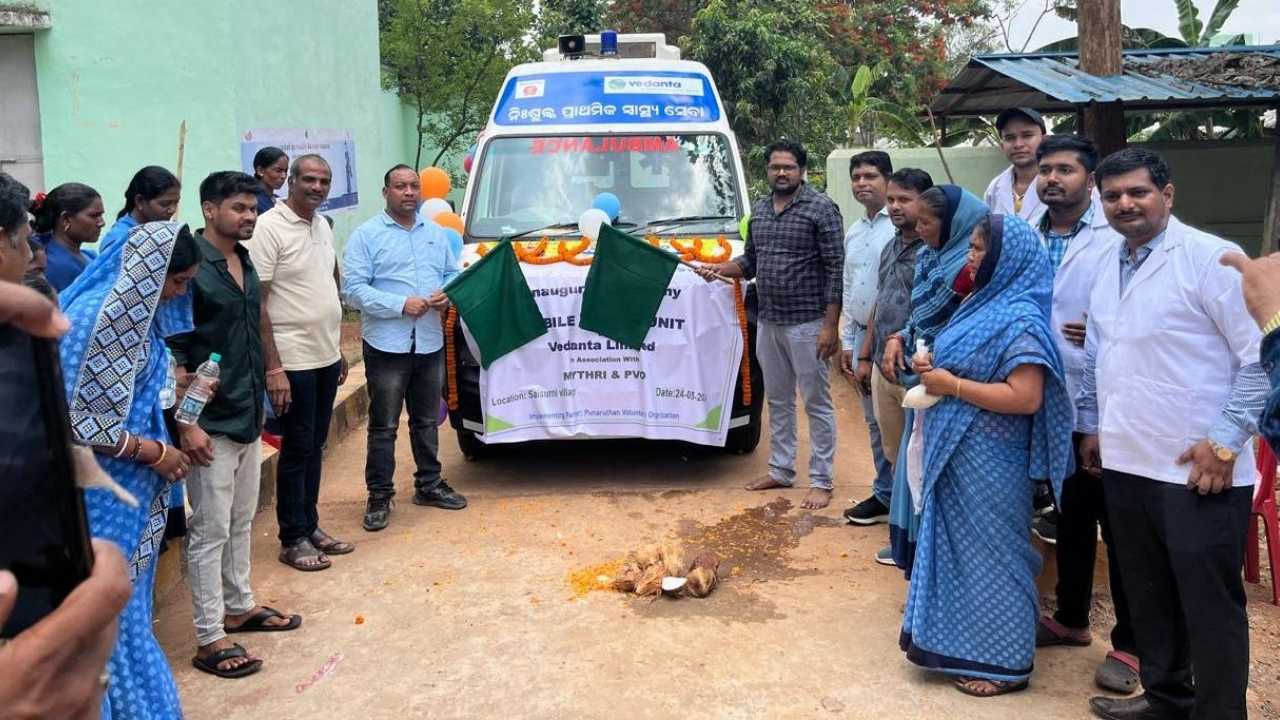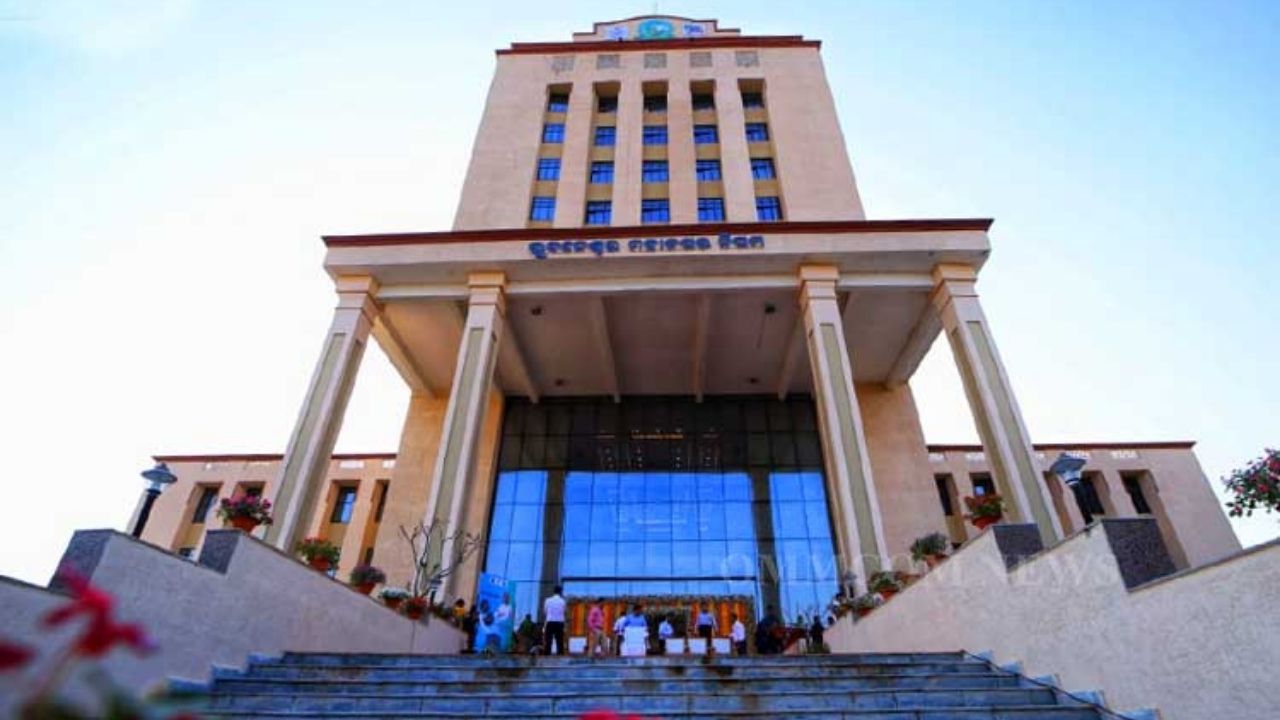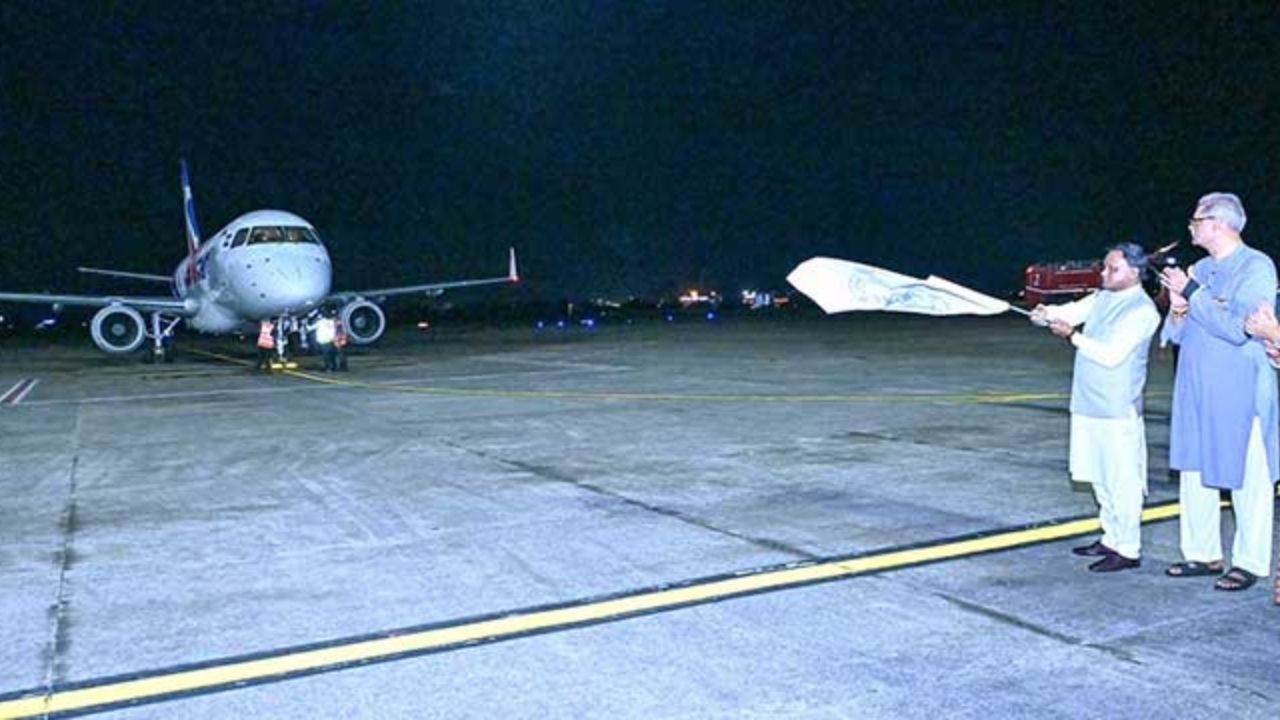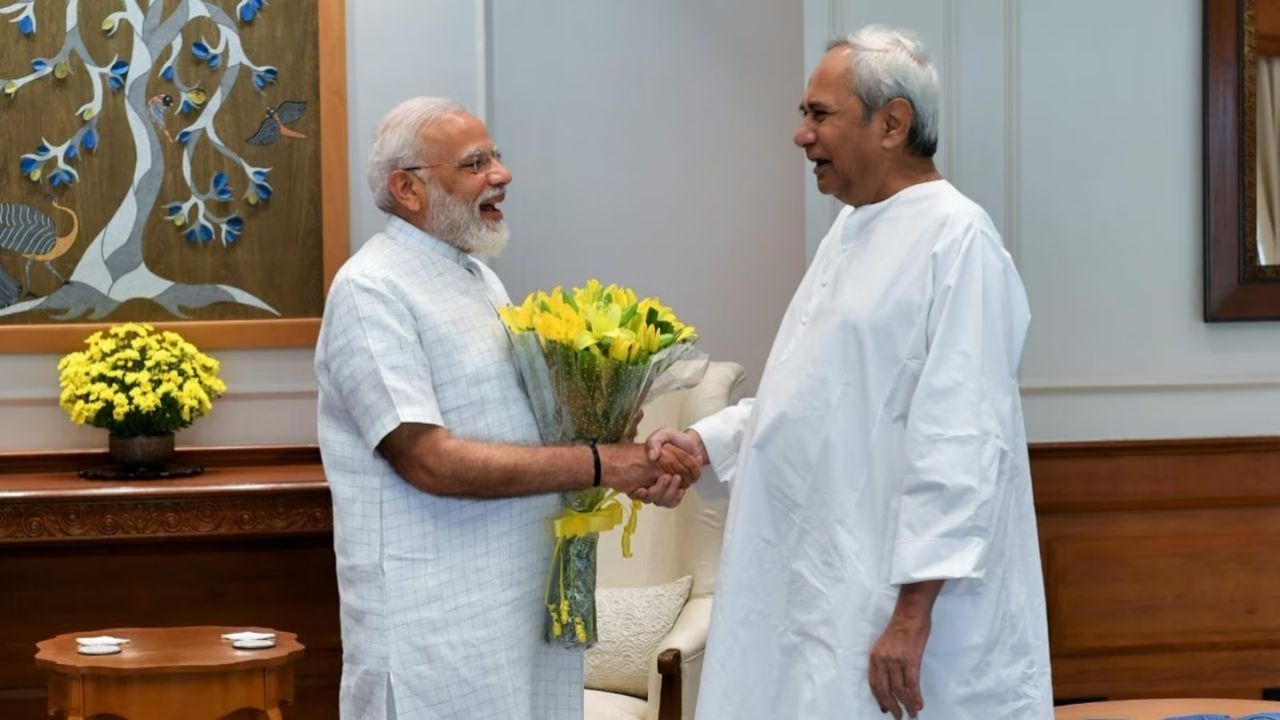In the heart of Odisha, where some communities are tucked away in the remote, rural hills, healthcare can often feel out of reach. But with Vedanta Aluminium’s new Mobile Health Unit (MHU) initiative, the door to healthcare is being swung wide open, bringing medical services directly to those who need it the most. This forward-thinking initiative is transforming the lives of thousands of residents in the Rayagada and Kalahandi districts, as well as other underserved regions in Odisha. So, what’s this about, and how is it making a difference? Let’s dive in.
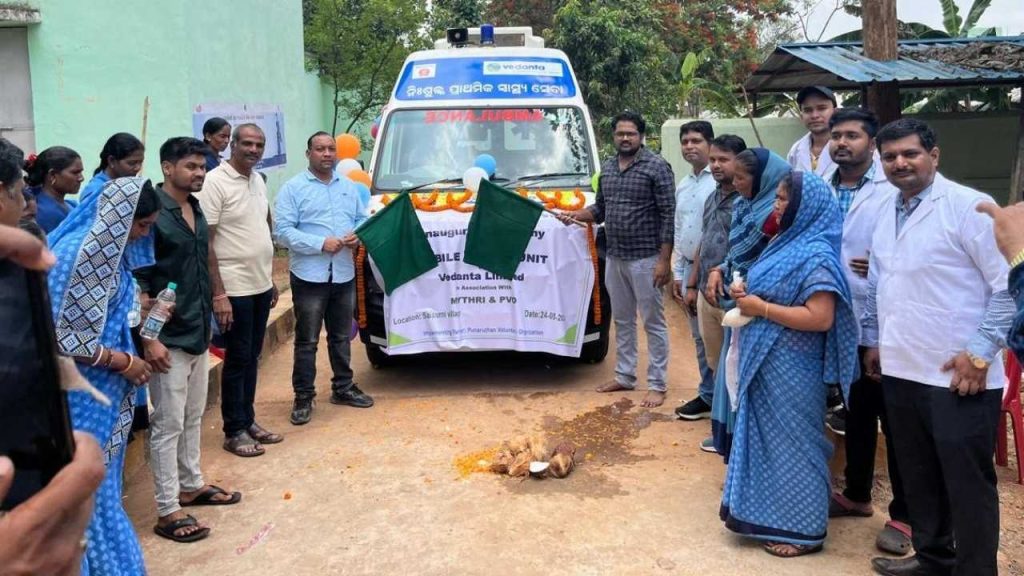
In today’s world, access to healthcare shouldn’t be a luxury; it’s a basic necessity. Yet, many rural areas in India, especially in places like Rayagada and Kalahandi, are still struggling to access basic health services. Long travel distances, lack of facilities, and financial barriers often leave people without the care they need. However, with this innovative step by Vedanta Aluminium, healthcare is coming directly to their doorsteps, thanks to the mobile health units.
Vedanta Launches Mobile Health Unit to Bring Healthcare
| Key Fact | Details |
|---|---|
| Initiative | Vedanta Aluminium Mobile Health Unit (MHU) |
| Target Areas | Rayagada, Kalahandi, Sundargarh, and Jharsuguda |
| Number of Villages Served | 52 remote villages |
| Reach in FY2024-25 | Over 20,500 individuals served through MHU visits |
| Community Awareness Sessions | More than 680 sessions reaching 15,000+ people |
| Healthcare Services Provided | Medical check-ups, blood sugar tests, free medicines, health camps, awareness campaigns |
| Support From Local Authorities | Local health officials express gratitude for improving access to quality healthcare |
| Official Source | Vedanta Aluminium |
The Mobile Health Unit program is not just a project; it’s a life-changer. Let’s break down what’s happening and how it’s working to improve the quality of life for those in rural areas.
Vedanta’s Mobile Health Unit initiative is a game-changer in rural healthcare. By bringing healthcare to the doorsteps of remote villages in Odisha, Vedanta is not only improving medical access but also empowering these communities with the knowledge they need to lead healthier lives. This program is a perfect example of how businesses can contribute to social development while simultaneously building trust and creating lasting positive change.
The Need for Accessible Healthcare
Before diving into the specifics of Vedanta’s initiative, it’s essential to understand why such projects are crucial. In rural India, healthcare access is often limited. Long distances between villages and healthcare facilities, coupled with poor infrastructure, prevent communities from receiving regular medical attention. According to a report by The World Bank, about 70% of India’s rural population struggles to access basic healthcare services.
Imagine living in a small, remote village with limited access to doctors, medical staff, or even medicine. If someone falls ill, traveling to the nearest hospital could mean taking a day off work or a long journey. In such scenarios, health issues can often spiral out of control.
This is where Vedanta Aluminium’s Mobile Health Units (MHUs) come into play. These mobile clinics are equipped with doctors, nurses, lab technicians, and pharmacists who bring healthcare directly to these underserved communities.
How Vedanta’s Mobile Health Units Work
Vedanta Aluminium has taken a remarkable step by launching these Mobile Health Units, which travel to remote villages, offering a wide range of healthcare services. The goal? To make quality healthcare accessible and affordable for everyone, regardless of where they live.
Here’s how the Mobile Health Units operate:
- Equipped for Quality Care: Each unit is fully equipped with essential medical tools and staff. The units have doctors, nurses, lab technicians, and pharmacists on board to provide basic medical check-ups, distribute free medicines, conduct blood sugar tests, and more.
- Health Camps and Awareness Programs: In addition to regular visits, health camps are organized where locals can come for preventive check-ups and consultations. These camps help raise awareness about hygiene, wellness, and disease prevention.
- Comprehensive Health Services: The services aren’t just limited to check-ups. The MHU staff also helps in diagnosing diseases, providing medicines for common ailments, and referring patients to higher-level healthcare centers for specialized treatment when needed.
The Impact So Far: By the Numbers
In FY2024-25, Vedanta’s MHU services reached more than 20,500 individuals in the region, making it a vital resource for rural communities in Odisha. In total, over 660 MHU visits were conducted across 52 villages in Rayagada, Kalahandi, Sundargarh, and Jharsuguda.
The impact isn’t just medical. In total, 680 community awareness sessions have been conducted, reaching over 15,000 people. These sessions have helped educate locals about basic health practices, from maintaining personal hygiene to preventing communicable diseases.
Key Services Provided:
- General health check-ups
- Blood sugar testing
- Free medicine distribution
- Disease prevention awareness
- Hygiene and wellness education
Through these initiatives, Vedanta is ensuring that these remote communities don’t have to travel long distances for quality healthcare, which can be expensive and time-consuming.
The Role of Local Health Authorities
One of the standout features of Vedanta’s MHU program is the strong collaboration with local health authorities. The program has earned recognition from district health officials who are grateful for the added support these mobile units provide.
Dr. Netrananda Nayak, the Head of the Community Health Centre in Kashipur block, said, “The MHU service will help about 10,000 people in the region avail quality healthcare right at their doorsteps. This will go a long way in enhancing medical access and raising health awareness among the people here.”
The collaboration between Vedanta and local health authorities ensures that the community is receiving holistic support, from medical treatment to educational initiatives.
Looking Ahead: A Sustainable Approach to Healthcare
This initiative is part of Vedanta Aluminium’s broader commitment to sustainable development and corporate social responsibility (CSR). The company is focused on creating a lasting impact, not just through providing medical services, but also by empowering communities with knowledge and resources that can improve their overall health and well-being.
Vedanta’s MHU initiative reflects a larger global trend of companies taking responsibility for their communities’ well-being. By focusing on both immediate healthcare needs and long-term health education, Vedanta is ensuring that these rural populations are better prepared to face future health challenges.
Why This Matters to You
If you’re a professional in the healthcare, CSR, or development sectors, this initiative offers a wealth of lessons on the importance of accessibility, community involvement, and the power of mobile healthcare. The successful collaboration between Vedanta and local health authorities also showcases how public-private partnerships can effectively address rural healthcare gaps.
Furthermore, from an SEO perspective, Vedanta’s Mobile Health Unit program demonstrates the importance of integrating community health services into broader business models, which can be a strong selling point for companies aiming to boost their E-E-A-T (Expertise, Authoritativeness, and Trustworthiness) in CSR and healthcare domains.
Bhubaneswar’s Premier Govt Hospital Fails to Deliver Basic Dental Treatment
Govt Report Reveals Fivefold Rise in EMRS School Dropouts, Chhattisgarh and Odisha Hit Hardest
FAQs
1. What exactly is a Mobile Health Unit (MHU)?
A Mobile Health Unit (MHU) is a mobile clinic that travels to remote areas to provide healthcare services. These units are equipped with medical staff and equipment to offer a variety of services like health check-ups, blood tests, and free medicine distribution.
2. Which areas are served by Vedanta’s Mobile Health Units?
Vedanta’s MHUs currently serve remote villages in the Rayagada, Kalahandi, Sundargarh, and Jharsuguda districts of Odisha, India.
3. What healthcare services do these mobile units offer?
These units provide general health check-ups, blood sugar testing, free medicines, and health education through awareness camps and regular visits.
4. How many people benefit from Vedanta’s MHU services?
In FY2024-25, over 20,500 individuals received healthcare through Vedanta’s MHU services, making a significant impact in rural Odisha.
5. How can local health authorities partner with corporate initiatives like Vedanta’s MHUs?
Local health authorities can collaborate with corporate CSR initiatives to ensure better access to healthcare services. Public-private partnerships can play a crucial role in addressing rural healthcare challenges.

